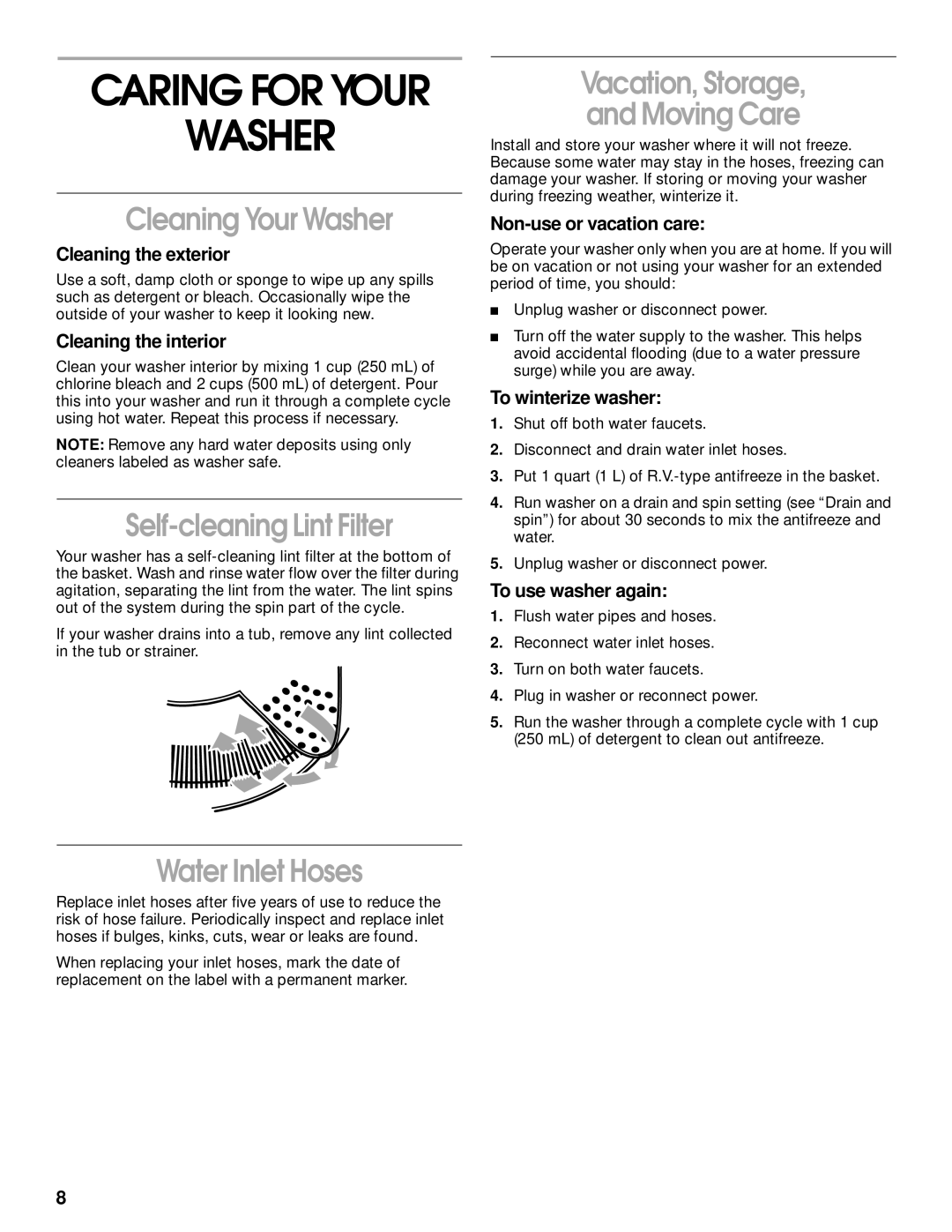
CARING FOR YOUR
WASHER
Cleaning Your Washer
Cleaning the exterior
Use a soft, damp cloth or sponge to wipe up any spills such as detergent or bleach. Occasionally wipe the outside of your washer to keep it looking new.
Cleaning the interior
Clean your washer interior by mixing 1 cup (250 mL) of chlorine bleach and 2 cups (500 mL) of detergent. Pour this into your washer and run it through a complete cycle using hot water. Repeat this process if necessary.
NOTE: Remove any hard water deposits using only cleaners labeled as washer safe.
Self-cleaning Lint Filter
Your washer has a
If your washer drains into a tub, remove any lint collected in the tub or strainer.
Vacation, Storage,
and Moving Care
Install and store your washer where it will not freeze. Because some water may stay in the hoses, freezing can damage your washer. If storing or moving your washer during freezing weather, winterize it.
Non-use or vacation care:
Operate your washer only when you are at home. If you will be on vacation or not using your washer for an extended period of time, you should:
■Unplug washer or disconnect power.
■Turn off the water supply to the washer. This helps avoid accidental flooding (due to a water pressure surge) while you are away.
To winterize washer:
1.Shut off both water faucets.
2.Disconnect and drain water inlet hoses.
3.Put 1 quart (1 L) of
4.Run washer on a drain and spin setting (see “Drain and spin”) for about 30 seconds to mix the antifreeze and water.
5.Unplug washer or disconnect power.
To use washer again:
1.Flush water pipes and hoses.
2.Reconnect water inlet hoses.
3.Turn on both water faucets.
4.Plug in washer or reconnect power.
5.Run the washer through a complete cycle with 1 cup (250 mL) of detergent to clean out antifreeze.
Water Inlet Hoses
Replace inlet hoses after five years of use to reduce the risk of hose failure. Periodically inspect and replace inlet hoses if bulges, kinks, cuts, wear or leaks are found.
When replacing your inlet hoses, mark the date of replacement on the label with a permanent marker.
8
